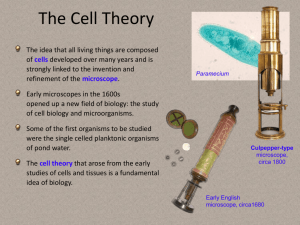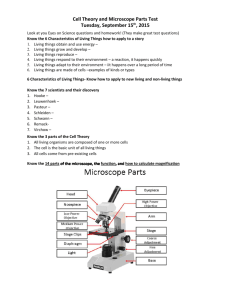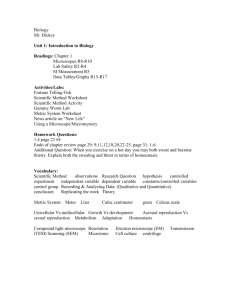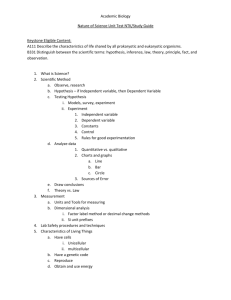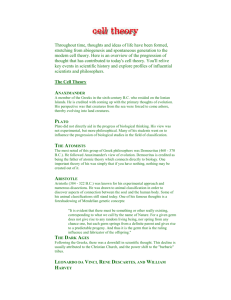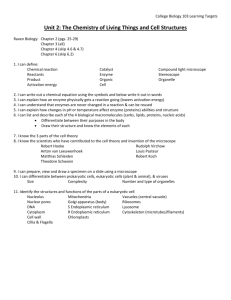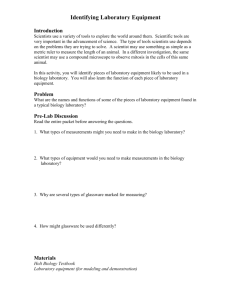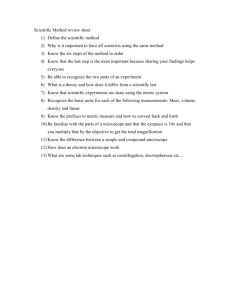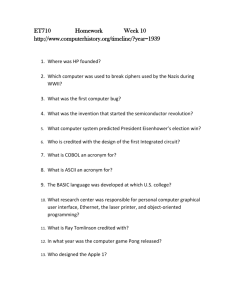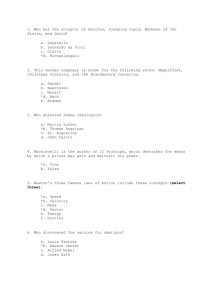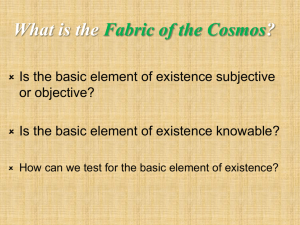Cell Theory: A Brief History & Key Scientists
advertisement
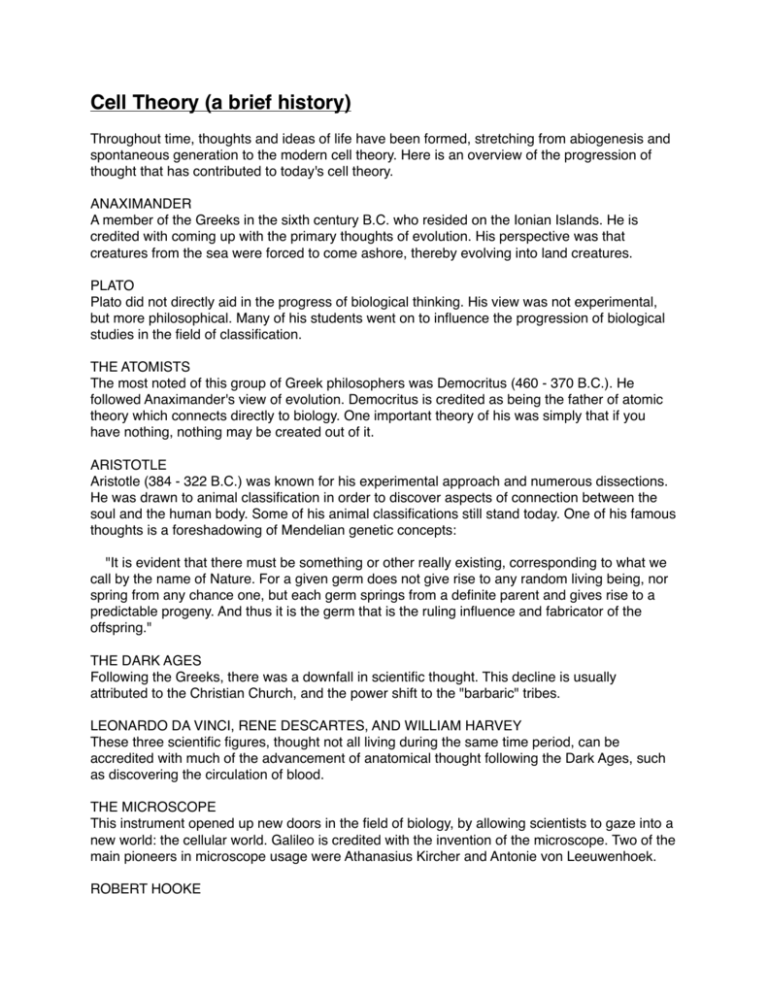
Cell Theory (a brief history)! ! Throughout time, thoughts and ideas of life have been formed, stretching from abiogenesis and spontaneous generation to the modern cell theory. Here is an overview of the progression of thought that has contributed to today's cell theory.! ! ANAXIMANDER! A member of the Greeks in the sixth century B.C. who resided on the Ionian Islands. He is credited with coming up with the primary thoughts of evolution. His perspective was that creatures from the sea were forced to come ashore, thereby evolving into land creatures.! ! PLATO! Plato did not directly aid in the progress of biological thinking. His view was not experimental, but more philosophical. Many of his students went on to influence the progression of biological studies in the field of classification.! ! THE ATOMISTS! The most noted of this group of Greek philosophers was Democritus (460 - 370 B.C.). He followed Anaximander's view of evolution. Democritus is credited as being the father of atomic theory which connects directly to biology. One important theory of his was simply that if you have nothing, nothing may be created out of it.! ! ARISTOTLE! Aristotle (384 - 322 B.C.) was known for his experimental approach and numerous dissections. He was drawn to animal classification in order to discover aspects of connection between the soul and the human body. Some of his animal classifications still stand today. One of his famous thoughts is a foreshadowing of Mendelian genetic concepts:! ! "It is evident that there must be something or other really existing, corresponding to what we call by the name of Nature. For a given germ does not give rise to any random living being, nor spring from any chance one, but each germ springs from a definite parent and gives rise to a predictable progeny. And thus it is the germ that is the ruling influence and fabricator of the offspring."! ! THE DARK AGES! Following the Greeks, there was a downfall in scientific thought. This decline is usually attributed to the Christian Church, and the power shift to the "barbaric" tribes.! ! LEONARDO DA VINCI, RENE DESCARTES, AND WILLIAM HARVEY! These three scientific figures, thought not all living during the same time period, can be accredited with much of the advancement of anatomical thought following the Dark Ages, such as discovering the circulation of blood.! ! THE MICROSCOPE! This instrument opened up new doors in the field of biology, by allowing scientists to gaze into a new world: the cellular world. Galileo is credited with the invention of the microscope. Two of the main pioneers in microscope usage were Athanasius Kircher and Antonie von Leeuwenhoek.! ! ROBERT HOOKE! This English naturalist (1635 - 1703) coined the term "cell" after viewing slices of cork through a microscope. The term came from the Latin word cella which means "storeroom" or "small container". He documented his work in the Micrographia, written in 1665.! ! JEAN-BAPTISTE DE LAMARCK! The majority of this Frenchman's work (1744 - 1829) dealt with animal classification and evolution. He is credited with taking steps towards the creation of the cell theory with this saying:! ! "Every step which Nature takes when making her direct creations consists in organizing into cellular tissue the minute masses of viscous or mucous substances that she finds at her disposal under favorable circumstances."! ! THE CELL: AN INDIVIDUAL UNIT OF LIFE! In 1824, Rene Dutrochet discovered that "the cell is the fundamental element in the structure of living bodies, forming both animals and plants through juxtaposition." However, the first sightings of the internal action of the cell were made by Robert Brown. In Berlin, Johannes Muller created connections between biology and medicine, prompting the connective thinking of his students, such as those of Theodore Schwann. Schwann created the term "cell theory" and declared that plants consisted of cells. This declaration was made after that of Matthias Schlieden's (1804 - 1881) that animals are composed of cells.! ! BIOGENESIS! German pathologist Rudolf Virchow (1821 - 1902) altered the thought of cellular biology with his statement that "every cell comes from a cell". Not even twenty years after this statement, processes of cell reproduction were being described--Virchow had completed the thought behind the basic cell theory.
